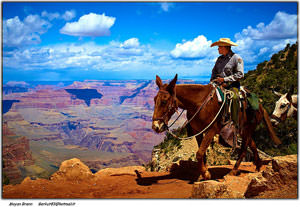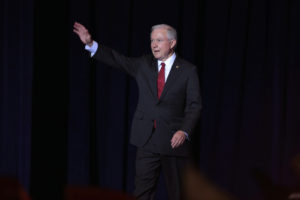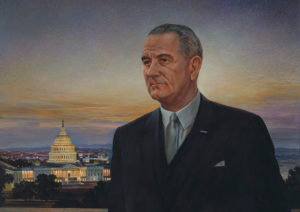It Seems Wall Street Is Occupying Us
The good news of the day is that Bill Moyers is coming back to television next January. The bad news is that Coca-Cola seems to be winning its battle to fill the Grand Canyon with empty plastic bottles.
The good news of the day is that Bill Moyers is coming back to television next January. The bad news is that Coca-Cola seems to be winning its battle to fill the Grand Canyon with empty plastic bottles.
The two stories came together last week. In a speech celebrating the 40th anniversary of Ralph Nader’s Public Citizen, among the things Moyers, a credible voice of the people, had to say to the Nader group were these:
“Why New York’s Zuccotti Park is filled with people is no mystery. Reporters keep scratching their heads and asking: ‘Why are you here?’ But it’s clear they are occupying Wall Street because Wall Street has occupied the country. And that’s why in public places across the country workaday Americans are standing up in solidarity. Did you see the sign a woman was carrying at a fraternal march in Iowa the other day? It read: ‘I can’t afford to buy a politician so I bought this sign.'”
“Barack Obama criticizes bankers as ‘fat cats,’ then invites them to dine at a pricey New York restaurant where the tasting menu runs to $195 a person. … The president has raised more money from banks, hedge funds, and private equity managers than any Republican candidate. … Our politicians are little more than money launderers in the trafficking of power and policy — fewer than six degrees of separation from the spirit and tactics of Tony Soprano.”
Quoting from The Economist, hardly a voice of liberalism: “A growing body of evidence suggests that the meritocratic ideal is in trouble in America. Income inequality is growing to levels not seen since the (first) Gilded Age. But social mobility is not increasing at anything like the same pace. … Everywhere you look in modern America — in the Hollywood Hills or the canyons of Wall Street, in the Nashville recording studios or the clapboard houses of Cambridge, Massachusetts — you see elites mastering the art of perpetuating themselves. America is increasingly looking like imperial Britain, with dynastic ties proliferating, social circles interlocking, mechanisms of social exclusion strengthening, and a gap widening between the people who make decisions and shape the culture and the vast majority of working stiffs.”
Moyers then gives a concise history of the rise of the corporate right-wing takeover of a lot of American politics beginning in the 1970s. He cites a memo for the U.S. Chamber of Commerce by Lewis Powell, then a Virginia lawyer, later a Supreme Court justice, and a book, “A Time for Truth,” by a former secretary of the Treasury. Both men argued that it was time for corporate America to mobilize its people — and especially its money — to build a giant political machine including think tanks, university chairs and departments and college newspapers.
A brilliant idea — and it worked. Conservatives, helped along by the Reagan administration, changed American public opinion, harnessing a new populism that targeted big government rather than the old populist enemies, including Wall Street bankers, railroad companies, big oil and the like. Bureaucrats became the enemy. Plutocrats ruled and still do.
Take Coca-Cola. Last year, the National Park Service moved to ban the sale of plastic water bottles around the Grand Canyon. People were throwing their empty Dasani bottles (that’s Coke’s water brand) into the great gorge. Coke sent its lobbyists to Washington (and $13 million to national parks), and soon enough the bottle ban was ended and sent someplace for “further study.”
That’s the way it works: government of the corporations, by the corporations and for the corporations. And it will get worse. Mitt Romney and the Supreme Court have said and ruled that corporations are “people,” with all the attendant liberties and privileges. I, for one, am with the guy who sent a letter to the New York Times asking if General Electric was single or married.
Welcome back! Give ’em hell, Bill.
© 2011 UNIVERSAL UCLICK
Your support matters…Independent journalism is under threat and overshadowed by heavily funded mainstream media.
You can help level the playing field. Become a member.
Your tax-deductible contribution keeps us digging beneath the headlines to give you thought-provoking, investigative reporting and analysis that unearths what's really happening- without compromise.
Give today to support our courageous, independent journalists.






You need to be a supporter to comment.
There are currently no responses to this article.
Be the first to respond.